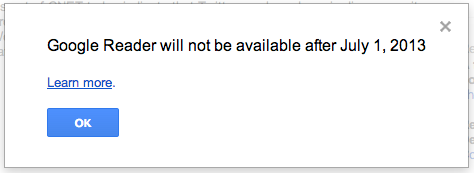Chemists: How Do You Keep Current with the Literature?
Whether you know it or not, one of your biggest problems as a chemist is keeping current with the chemical literature. Missing one key paper can make the difference between breakthrough and heartbreak.
The explosive growth rate of the chemical literature makes it increasingly difficult to keep up. From 1997 to 2007, the number of new documents indexed by Chemical Abstracts Service every year doubled to 1.72 million. That's nearly 5,000 documents every day, a rate that in turn doubles every ten years or so. Of course, all of this new content sits on top of the tens of millions of documents already published over the last century.
The Hard Way
In the early days, my method for keeping current was a weekly trip to the chemistry library's journal reading room - first through universities and then through my employer. With libraries gradually fading away and the rise of online subscriptions, that routine gradually moved to my computer screen.
One of my go-to services became SciFinder's Keep Me Posted. Just add keywords and from then on you'll get email notifications when new papers on these topics are published.
But there was a big limitation - I could only stay up-to-date with what I already knew I was interested in. What about all of the things I didn't know I should be interested in?
There were anywhere from 50 to 100 journals that contained enough relevant material to make me want to keep current. But how?
Google Reader
In 2005, Google introduced a service called Reader that fundamentally changed the way I solved the problem of keeping current with the literature.
The ability to merge tables of contents from numerous sources (not just journals) into one central location for scanning and follow-up every time I'm ready to be updated has been invaluable. It looks like I'm not alone.
Yesterday Google Reader greeted me with this message:

The service that enabled me to drink without drowning from the chemical literature firehose is shutting down.
Moving On
For everything Google Reader offered, it wasn't without its limitations. For example, even though the capability existed to discover articles from sources I didn't subscribe to, I always found the interaction awkward. Twitter just seemed so much better at that - although it too has issues.
Even worse, nearly every bench chemist I talked to about Google Reader had: (a) never heard of it; (b) either had no system for keeping current or used the same manual process I used in graduate school; and (c) continued using their current system.
My sense that there was a better solution even reached the extreme of developing one of my own. Although short-lived, the effort taught me a lot. Who knows - maybe it's time to re-visit the idea.
With so much at stake, how do you keep current with the chemical literature?